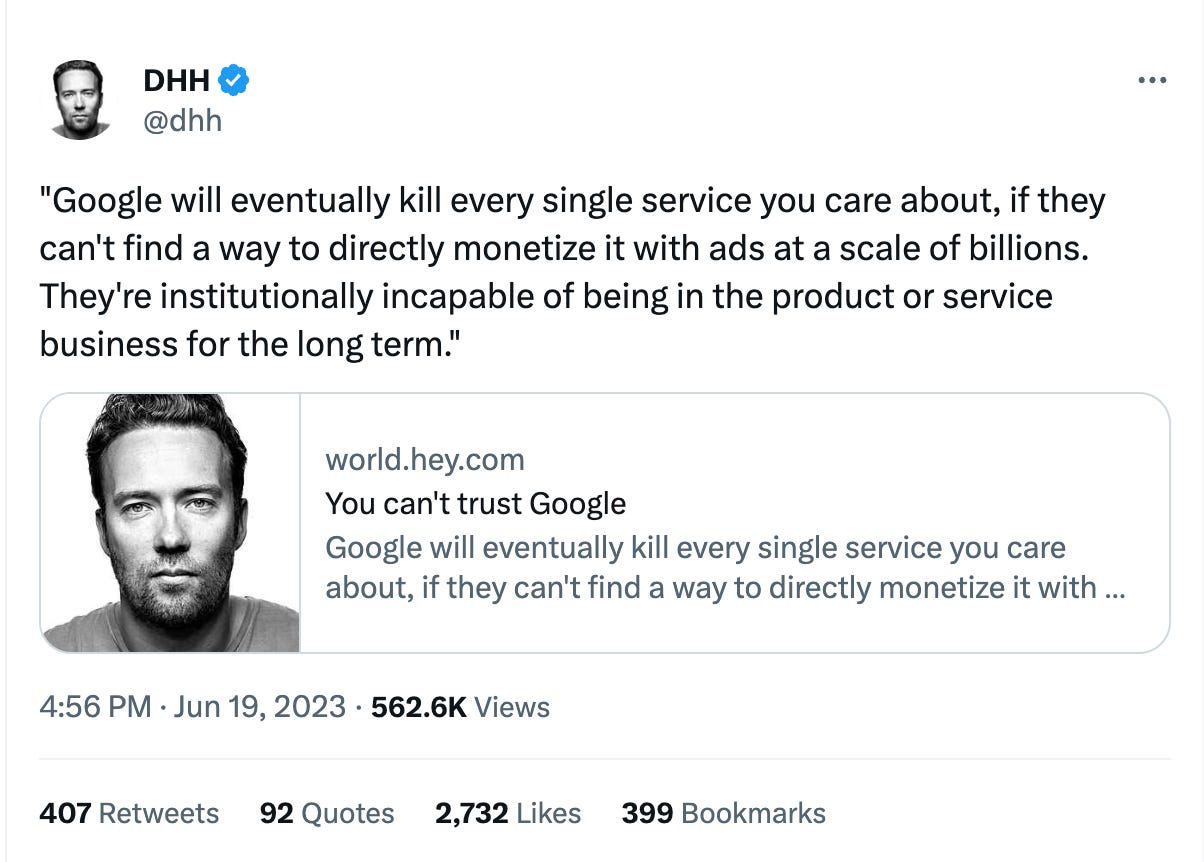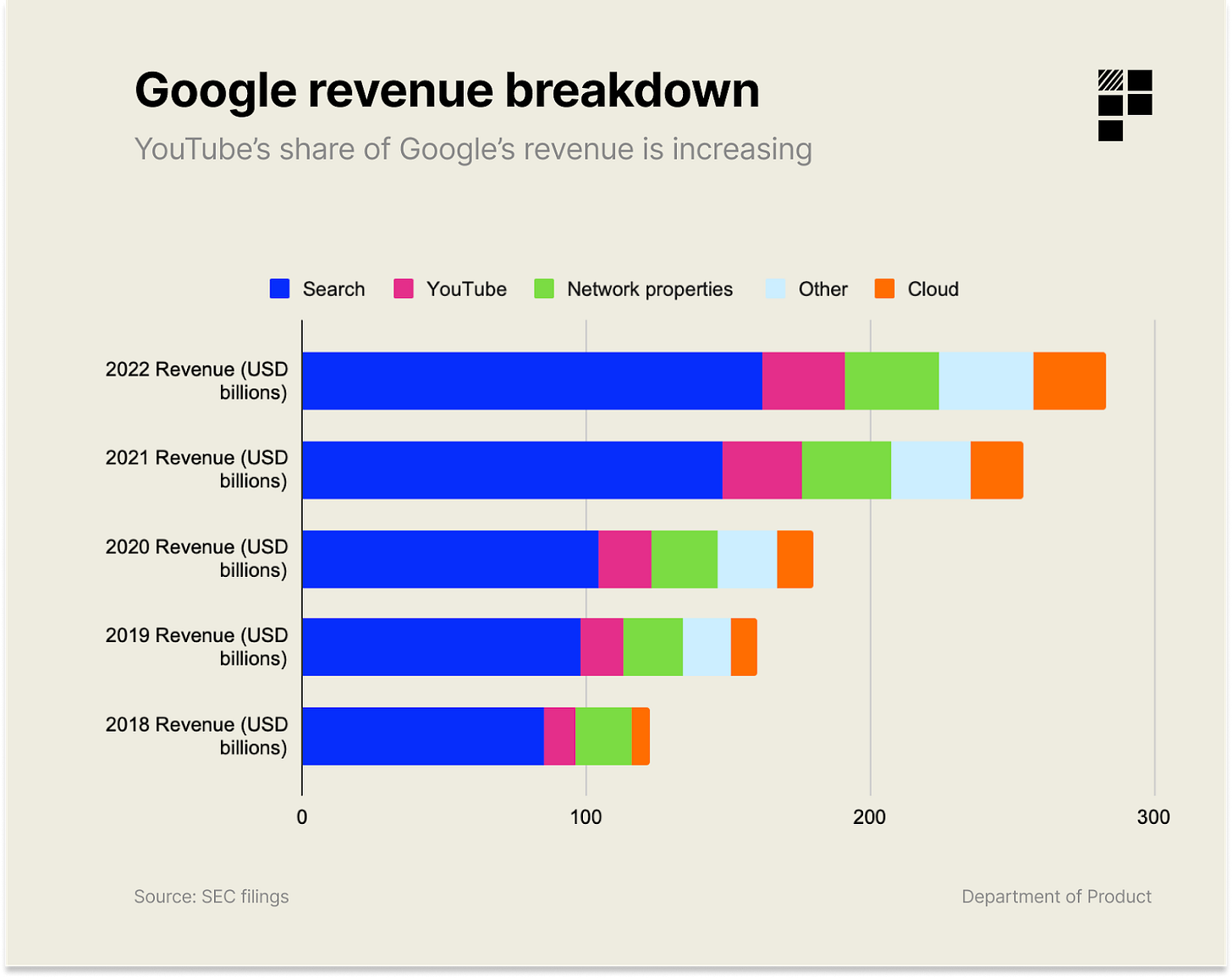📈 Chartpack: Monetization Models Part 2
How more product-led companies are making money
🔒Chartpacks are available for paid subscribers. If you’d like to upgrade to receive them you can do so below. Or you can find out more about paid access here.
Hi product people 👋,
Welcome back to this series of Chartpacks on monetization models, where we dig deep into how product-led companies are making money today.
Previously, we explored Duolingo, Zoom and Adobe. In this second part of the series we’ll continue to unpack the earnings of leading companies to give you inspiration for some of the ways you might be able to monetize your own product.
Coming up in part 2:
Understanding Google’s revenue streams and the potential threat of generative search results
How Discord makes money and lessons to learn from feature-based differentiation
The future of monetization - what new models and revenue sources are emerging and how you can experiment with these in your own product
Google
I came across this tweet recently:
And it certainly tells you a story about how Google views its products (rightly or wrongly). Whilst this is just an opinion, the numbers tell us just how strategically dependent Google is upon advertising.
The majority of its revenues are derived from advertising and this is predominantly split across Search and YouTube. YouTube’s share of that ad revenue is gradually increasing, too.
Search accounts for over 50% of Google’s revenues and advertising in general makes up the majority of its income. Despite predictions of its demise several times over past few years, no company has come anywhere close to dethroning Google as the de-facto way to find information on the web.
The most potent challengers to its crown have so far come in the form of other search engines:
DuckDuckGo
Bing Search
Brave Search
Each of these has slightly different monetization models but they’re still similar to Google. Brave monetizes its audience via ads which allow users to earn its native crypto token, $BAT (Basic Attention Token). DuckDuckGo sells ads without selling data and Bing is largely the same operationally to Google.
What none of these competitors represent, though, is a threat to the paradigm of search itself. Enter: ChatGPT and generative AI.
What threat does generative AI pose to threat?
With the majority of Google’s entire business dependent on advertising, some commentators are suggesting that generative AI could destroy its search business.
The Generative AI Google Killer hypothesis
The hypothesis is this: if generative AI provides all the answers to the questions users are typing into their keyboard through a conversational interface, why would they ever need to visit a website to find the answer when it's right there in front of them?
Without clicks to third party websites, Google makes no Search advertising cash. And Microsoft knows this.
Microsoft’s partnership between Bing and OpenAI is a strategic attack on Google’s business. For Microsoft, they’re perfectly happy with a search results engine that doesn’t take the user anywhere. Their core business is in selling software subscriptions across its portfolio of products.



